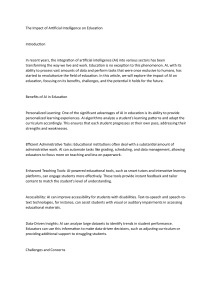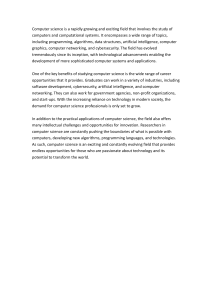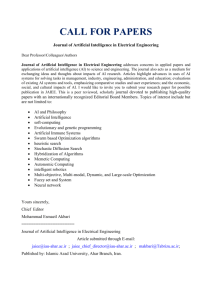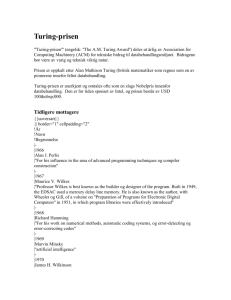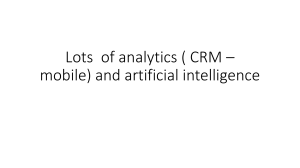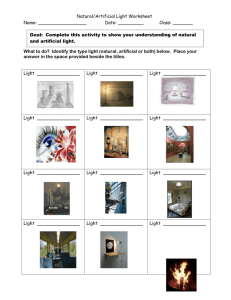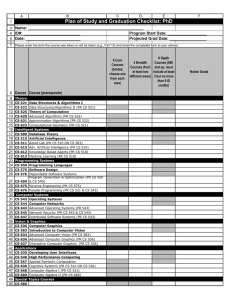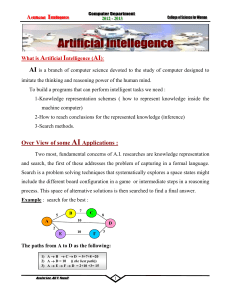COMPSCI 357: Introduction to Artificial Intelligence Course Coordinator: Tim Andersen
advertisement
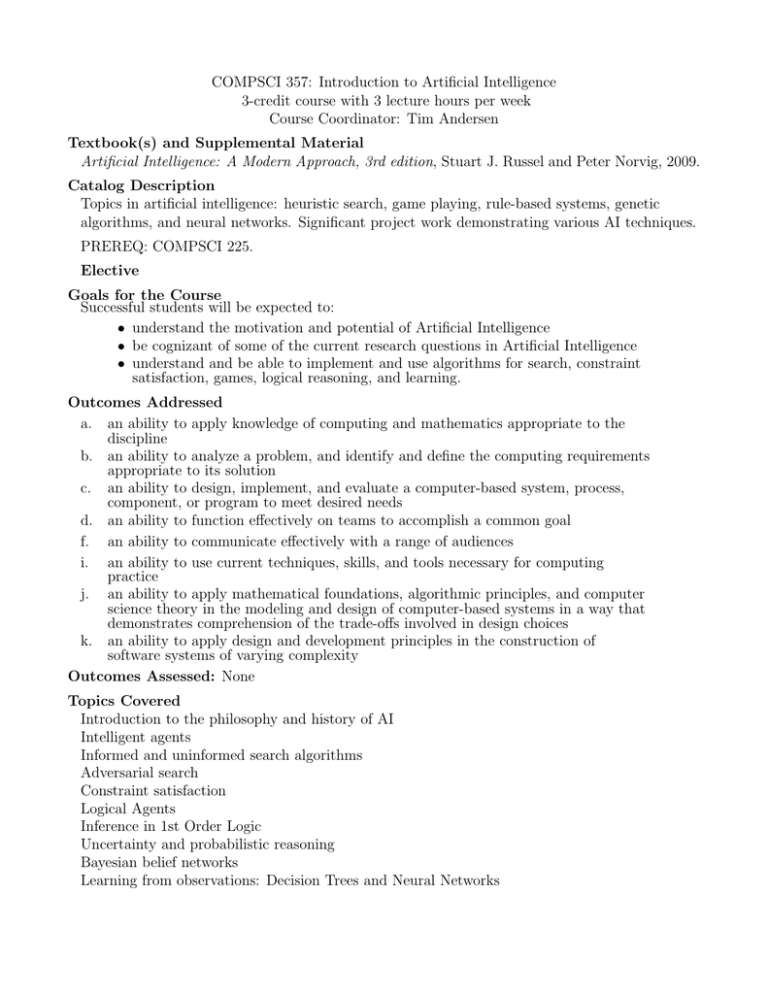
COMPSCI 357: Introduction to Artificial Intelligence 3-credit course with 3 lecture hours per week Course Coordinator: Tim Andersen Textbook(s) and Supplemental Material Artificial Intelligence: A Modern Approach, 3rd edition, Stuart J. Russel and Peter Norvig, 2009. Catalog Description Topics in artificial intelligence: heuristic search, game playing, rule-based systems, genetic algorithms, and neural networks. Significant project work demonstrating various AI techniques. PREREQ: COMPSCI 225. Elective Goals for the Course Successful students will be expected to: • understand the motivation and potential of Artificial Intelligence • be cognizant of some of the current research questions in Artificial Intelligence • understand and be able to implement and use algorithms for search, constraint satisfaction, games, logical reasoning, and learning. Outcomes Addressed a. an ability to apply knowledge of computing and mathematics appropriate to the discipline b. an ability to analyze a problem, and identify and define the computing requirements appropriate to its solution c. an ability to design, implement, and evaluate a computer-based system, process, component, or program to meet desired needs d. an ability to function effectively on teams to accomplish a common goal f. an ability to communicate effectively with a range of audiences i. an ability to use current techniques, skills, and tools necessary for computing practice j. an ability to apply mathematical foundations, algorithmic principles, and computer science theory in the modeling and design of computer-based systems in a way that demonstrates comprehension of the trade-offs involved in design choices k. an ability to apply design and development principles in the construction of software systems of varying complexity Outcomes Assessed: None Topics Covered Introduction to the philosophy and history of AI Intelligent agents Informed and uninformed search algorithms Adversarial search Constraint satisfaction Logical Agents Inference in 1st Order Logic Uncertainty and probabilistic reasoning Bayesian belief networks Learning from observations: Decision Trees and Neural Networks Grading A letter grade is assigned to each student at the end of the course based on the numerical scores of these activities: Activity Weight First Midterm Exam 15% Second Midterm Exam 15% Final Exam 20% Homework 10% Programming Projects 40% Curriculum Category Content (Credits) Area Core Advanced Algorithms 3 Software Design Computer Architecture Data Structures Programming Languages

